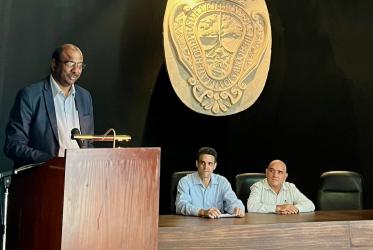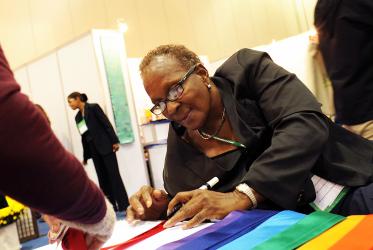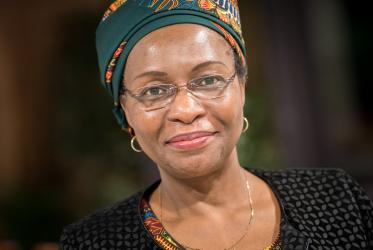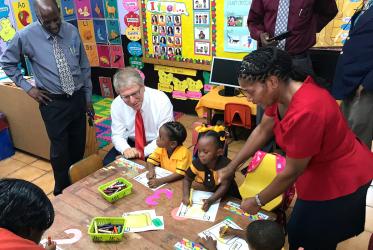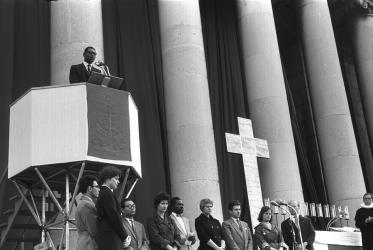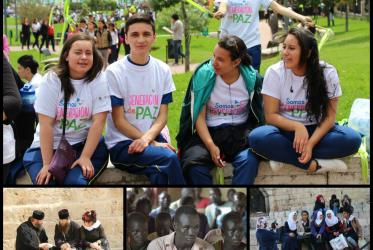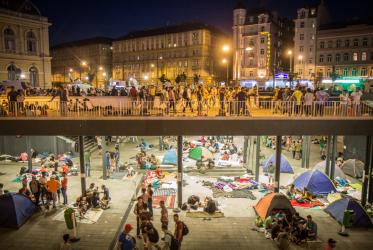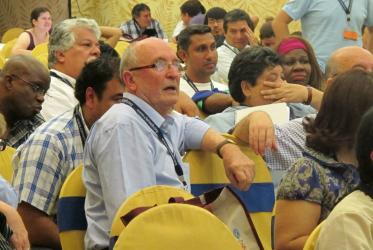Displaying 1 - 18 of 18
28 March 2024
Tveit: “Faith is what God has given to us”
11 October 2018
Jamaica vantage point for Caribbean ecumenism
05 October 2018
"We have our work cut out for us"
10 August 2017
European churches encouraged to work together to address refugee crisis
10 September 2015
WCC greets new general secretary of CLAI
07 August 2015

